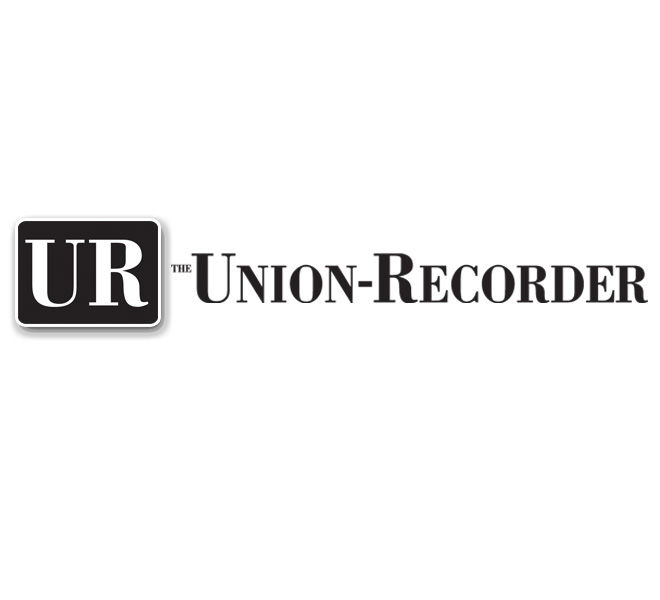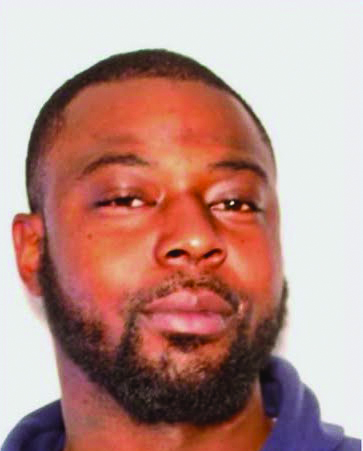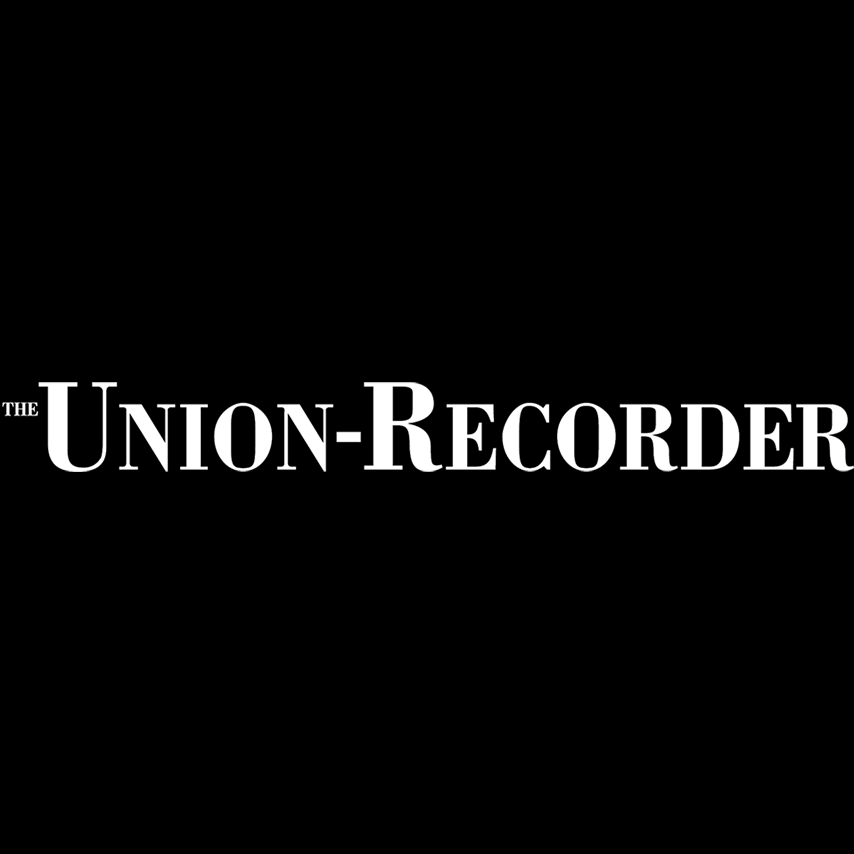Union-Recorder Interview: The Peach Belt is paying attention: Ever-changing scene of college athletics –NIL, portal – not lost on the Division II level
Published 7:00 am Saturday, September 21, 2024

- Union-Recorder Interview: The Peach Belt is paying attention: Ever-changing scene of college athletics –NIL, portal – not lost on the Division II level
On Tuesday, Sept. 17, the Peach Belt Conference held a preseason event for the 2024-25 men’s and women’s college basketball campaign at The Centennial Center on the campus of member school Georgia College & State University. While the various coaches and players were recording their outlook for the conference’s signature sport, Peach Belt Commissioner Dave Brunk sat down with The Union-Recorder to discuss the current state of intercollegiate athletics from the point-of-view of a non-football NCAA Division II league.
Trending
Commissioner Brunk once worked for the NCAA office, which led to him once getting chastised in a restaurant for putting this employee’s alma mater on probation. How he explained the facts will soon follow.
But first, a recap of what the Peach Belt Conference is. The PBC is made up of 10 full-time members including GCSU in Milledgeville. Its founding goes back to 1990 and started with two championship sports. It grew to 11 in 1991 to become a full NCAA conference. GCSU was one of seven charter members, and Marvin Vanover was the first commissioner.
Earlier in 2024, the PBC announced that it offered current NAIA school Middle Georgia State an invitation to join. MGS is expected to apply for NCAA Division II membership in February, 2025, and if approved will join the PBC in the fall.
Brunk became the league’s second commissioner in 2007. GCSU president Cathy Cox began a two-year term as the PBC Executive Committee chair on July 1.
“Great” is the current state of the Peach Belt Conference per Brunk’s summary.
“We are doing quite well from the athletic standpoint,” he said. “Academically, our student-athletes are second to none in terms of the Presidential Honor Rolls they’ve been a part of.”
Trending
In August, 565 Peach Belt Conference student-athletes were named recipients of the Academic Achievement Award by the Division 2 Athletic Directors Association (D2ADA).
“We are very pleased with the success we’ve had on the field of play,” said Brunk. “There’s just something about the Peach Belt, our reputation throughout the country, throughout Division II, and D-I and D-III circles. We have great institutions, outstanding student-athletes. I always remind the coaches, kudos to them for recruiting these young men and women who have been doing a great job, been great ambassadors for their institutions and the league.
“We’re excited about the future with Middle Georgia coming in.”
The Peach Belt has seen schools come and go, recently losing Young Harris but gaining South Carolina-Beaufort. Brunk took a phrase from his Big 12 counterpart, “We are open for business.” They are still looking out for institutions they feel would be a fit academically and athletically (within the ‘footprint’ of course) to see if any would be a viable member.
“From the financial standpoint, we are doing very well,” said Brunk.
And that’s considering a major monetary challenge still not completely faded away from memory. The PBC is trending upward in these aforementioned areas with two full seasons of normal operations in the books post-pandemic, which was nothing but normal.
“We were very fortunate in terms of the continuance of the programs our member schools sponsored,” said Brunk. “A year ago we added men’s and women’s indoor track and field to get us up to 18 championship sports.
“The thing that really helped us through COVID was the fact that the policies we put in place … we were very meticulous in the way we conducted our business. We did have to shut down (in the spring of 2020), but we put a good plan in place for the following year to be able to compete and get back to more of a sense of normality.”
There was the concept of coffee klatches, Zoom meetings with school presidents and athletic directors to listen to speakers on safe means of traveling back and forth to out-of-town venues.
“I was pleased with the way the Peach Belt handled that crisis,” said Brunk. “I hope we never have to go through that (again).”
It was around that same two-year span when schools were working their way around COVID that some major developments in collegiate athletics occurred. The most notable was a ruling to allow student-athletes to benefit financially from their name, image or likeness (NIL) without it jeopardizing their amateur status and eligibility.
What followed was the settlement of lawsuits involving the NCAA over the same matter. The lawsuits, however, mention specific conferences once known collectively as the ‘Power 5.’
GCSU athletic director Wendell Staton has often stated how this school doesn’t have to deal with issues such as NIL. The NCAA often takes a verbal beating over how it has handled the new atmosphere with some questions of its continued usefulness.
The NCAA, however, is more than just ‘Power 4,’ expanding a football playoff or March Madness. GCSU, North Georgia, Columbus State, Flagler College, and other PBC members also operate under the NCAA banner. The NCAA, in fact, picks up the expense for schools to travel to the sites of national championship venues, and that includes the regional and super-regional tournaments Bobcat baseball played in last spring.
Most of the attention, still, is paid to the highest level of college athletics. Even the PBC office is paying attention.
“Every day, I catch up on what is happening at the D-I level, what else is happening around Division II,” said Brunk. “I talk to my colleagues all the time, the 22 other commissioners. We are in constant contact. All of the happenings at the D-I level, it’s vitally important that I’m up to speed on all of that. Even though 99 percent does not affect us, I want to know what’s going on in the Big Sky as well as the SEC. Or the Heartland Conference. Just keep a finger on the pulse.
“It’s very important that a commissioner does that.”
And they don’t just shrug off an idea like NIL like it can’t happen at their schools. It can. But does it?
Brunk in fact said the PBC took a proactive role when NIL emerged to educate student-athletes about it even though they may not get the huge ‘Lamborghini’ offers others receive.
“We’ve had several student-athletes across the conference who have been able to get an agreement worked out, say, with the local pizza restaurant where they would be able to receive some monetary distribution,” he said. “Maybe two dinners each week. What would they have to do for that? Maybe one day a week, wear a t-shirt to class. On your social media, talk about a great stromboli at the pizza place. Or make an appearance at the local car dealership. Pose for pictures and sign autographs. Conduct a youth clinic. Maybe two or three of your teammates do a youth clinic.”
Brunk said there’s a distinction where in Division I it’s ‘pay for play’ and in Division II it’s ‘pay for work.’ He said he often gets asked about NIL by those who know his position.
“We took a leadership role as a conference in the NIL space on how we can best educate our student-athletes,” he said. “On our web site, we did a series of interviews … experts in different fields to explain what is the contract. Your student-athletes are going to be entering into an agreement. What do you need to know? How can you keep yourself protected? We had a CPA talk about what are the tax implications. If you make over $5,000, you are going to have to have a W-2 and file that.”
There’s also handling being a student in one state but living otherwise in another. What about personal brands? Brunk said that Cox was the moderator of that when she was the dean at the Mercer School of Law before she became GCSU president. He said the PBC also worked with a company called NOCAP that helps student-athletes find NIL opportunities at no cost to them.
“Each one of our member schools are compliance people,” said Brunk, not aware of any collective at any member school. “Very in-tuned to (NIL). That are constantly making sure these student-athletes report their opportunities. We’re just trying to help them the best we can.”
The other major game-changer for collegiate athletics is the transfer portal, which takes away any waiting period for any student-athlete who wishes to transfer laterally within a Division, be it I or II.
If anything, in Brunk’s mind, the portal works to the detriment of the purity of intercollegiate athletics. And it has impacted the PBC plus the other 22 D-II conferences.
“It just seems that so many times these young men and women have the aura of, ‘I played D-I baseball or tennis,’” said Brunk. “(A lot of them) are making a move for the wrong reasons.”
Marcus Overstreet of Chicago was the PBC Men’s Basketball Freshman of the Year in 2024 for USC-Beaufort. He is now at Mercer. Brunk said he got a pretty good payday to make the move.
Tyler Johnson of USC-Aiken was the Men’s Player of the Year, also in basketball, is also now at Mercer as a graduate student.
“I’m really torn,” said Brunk. “I don’t want to prohibit their chance to move up, succeed. They might make that transfer, they don’t get to play, so they are going to transfer to another school, and then maybe another? Are they going to get their degree? Some are just bouncing around.”
On top of that, Brunk brought up the expansion of rosters at Division I and that scholarship limits are gone.
“You can have 32 on your roster now for baseball,” he said. “Inevitably, we are going to lose some very good baseball players who might be the 30th player on the team, might not suit up for away games and was a great contributing player at the D-II level. Make the move to D-I, are they going to be happy?”
Brunk also sees the National Letter of Intent (ironically initialed NLI) soon going away. It’s all about how a player goes to a college under the impression the coach who recruited him or her would be there for all four years. Next thing you know, that coach is leaving for another job, making the student-athlete wonder why can’t I go freely as well.
“I serve on the NLI appeals committee,” he said. “We hear stories like that time and time again. ‘I was promised this …’ The young man or woman signed the agreement and would be held to attending the institution at least for a year. The coach has gone. Something needs to be done about that.”
Brunk anticipates something coming out within the next month regarding NLIs. He said those are handled by the Collegiate Commissioners Association, and there is serious discussion of doing away with it.
“The question is how can you keep student-athletes committed to a school. There would have to be some language added to the basic financial aid agreement at the particular institution to provide some failsafe for the school that’s bringing them in.”
Per the NCAA constitution, Division II gets 4.37% of the NCAA operating budget. Brunk said they will still get that even with the settlement of the lawsuits and the payouts the Division I level must make. This means “all systems are go” when it comes to staging national championships.
It may not be perfect, and maybe the NCAA deserves some of its criticism. Does the backlash go too far with words like ‘corrupt’ and ‘unfair?’ Brunk calls himself a ‘proud former NCAA staff member’ at the national office for eight years in Overland Park, Kansas.
“One of the best experiences I ever had,” he said. “Now they are blaming everyone in Indianapolis, but the NCAA is all of us. We are the ones who made all the legislative proposals, enacted all the legislation.”
Brunk’s departments working for the NCAA were compliance services and membership services. When doing a compliance review in the Dallas area, he was dining with people from a school. Using his NCAA credit card, that’s when the waiter fussed at him about his alma mater. It was a case, though, of Brunk having a colleague with a similar last name.
“It was blaming the NCAA staff for the mishaps his alma mater had done contrary to legislation,” said Brunk. “A gentleman, faculty member, started saying, ‘You sit in your glass house in Overland Park. You make up all these rules.’ I let him vent. Then, ‘Do you know who the NCAA is?’ ‘It’s you!’ ‘No.’”
The NCAA is its member institutions. Brunk said there are a lot of misconceptions about it, but it is made up of people trying to do the right thing in what is a tough but potentially rewarding job.
But the criticism continues, that the NCAA is more about status quo than adapting and is inconsistent with rules enforcement.
“I definitely say (the NCAA) is needed,” said Brunk. “There needs to be some tweaking. Charlie Baker, the new NCAA president, has done a great job. He was really behind the 8 ball when he first came on board. He’s very proactive. He knows how to deal with both sides of the issue.
“Quite frankly … we missed the boat by not being proactive when NIL and the portal were first being talked about. If we could have put something in before California and Florida and Texas and some of those states put in their regulations, if we could have towards the end of President Emmert’s tenure, I think we’d be in a better position now. But I think Charlie Baker is the one that is going to lead us out of the myriad of issues. His contacts on Capital Hill, being a former governor of Massachusetts, is going to help.”
But Brunk thinks PBC is a good stock. He sees it as a visionary conference looking for the next ‘next’ to enhance the student-athlete experience.
“I hope upon graduation they will fondly remember the Peach Belt and their enjoyment at their alma mater,” he said. “Be good contributors and followers.”





